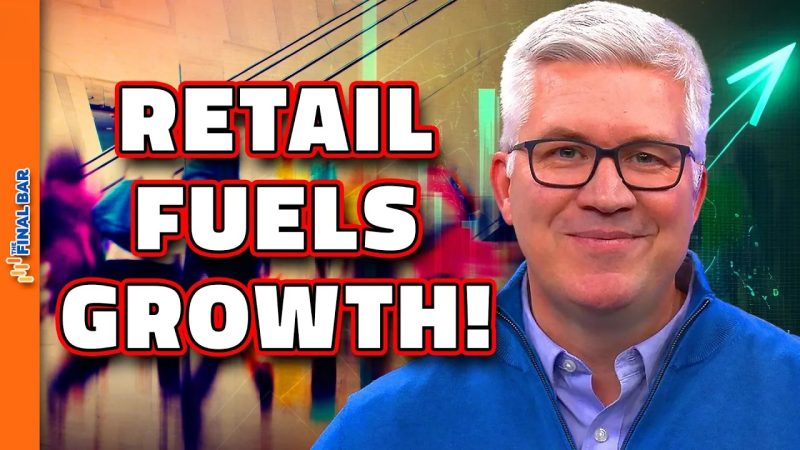Inflation Fear vs Strong Retail Sales: Understanding the Factors Driving Economic Growth
**The Impact of Inflation Fear on the Economy**
Inflation fear has been a topic of concern for many economists and policymakers in recent times. With the global economy still reeling from the effects of the COVID-19 pandemic, there is a growing concern that rising inflation could derail the fragile recovery.
Inflation is a measure of the rate at which the prices of goods and services rise over time. When inflation is high, the purchasing power of consumers decreases, leading to a decrease in overall economic activity. This is because consumers are less likely to spend money if they believe that prices will continue to rise in the future.
One of the main reasons for the current inflation fear is the unprecedented levels of monetary stimulus that have been injected into the economy by central banks around the world. In an effort to combat the economic downturn caused by the pandemic, central banks have slashed interest rates and engaged in massive quantitative easing programs. While these measures were necessary to prevent a total economic collapse, they have also raised concerns about the potential for runaway inflation.
**The Role of Strong Retail Sales in Fueling Growth**
Despite the concerns about inflation, there are some positive signs in the economy that are fueling growth. One of the most important indicators of economic health is retail sales, which measure the total receipts from the sale of goods and services to consumers. Strong retail sales are a sign that consumers are confident in the economy and are willing to spend money.
One of the reasons for the recent surge in retail sales is the reopening of the economy after months of lockdowns and restrictions. As businesses have started to reopen and people have returned to work, consumer spending has increased. This has had a positive impact on the overall economy, helping to drive growth and create jobs.
Another factor contributing to strong retail sales is the rise of e-commerce. With more people shopping online than ever before, retailers have been able to reach a wider audience and increase their sales. This shift towards online shopping has helped to boost retail sales and offset some of the negative impacts of the pandemic on traditional brick-and-mortar stores.
**Balancing Inflation Fear and Economic Growth**
As the economy continues to navigate the challenges brought on by the pandemic, it is important for policymakers to strike a balance between addressing inflation fear and supporting economic growth. It is clear that runaway inflation would be detrimental to the economy, but so too would a prolonged period of slow growth and high unemployment.
To address inflation fear, central banks may need to consider gradually tightening monetary policy to prevent the economy from overheating. This could involve raising interest rates and scaling back quantitative easing programs. However, these measures must be implemented carefully to avoid stifling economic growth and leading to a recession.
At the same time, policymakers should continue to support economic growth through measures such as targeted fiscal stimulus and investment in infrastructure. By creating an environment that is conducive to growth, policymakers can help to offset the negative impacts of inflation fear and ensure that the economy continues to recover from the effects of the pandemic.
In conclusion, the interplay between inflation fear and strong retail sales is a complex one that will continue to shape the economic landscape in the coming months and years. By carefully balancing these factors, policymakers can help to steer the economy towards a path of sustainable growth and prosperity for all.
